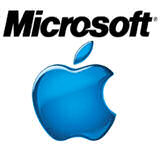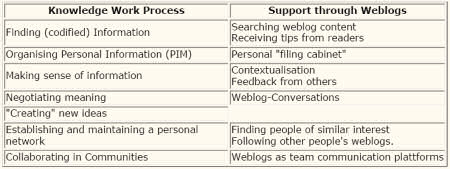[Via vowe]
IBM can be really funny and, in a way, completely ridiculous.
Although IBM is very strongly implemented in the industry I’m working for (insurance), we are using succesfully BEA Weblogic since more than 4 years. I must say I really like the contacts we had with this company and the technology vision they are implementing. A great integrated product!
On the other side, you have IBM with its Websphere product-line, not really integrated (at least ;-), not very convincing to my mind, but quite a good success on the market. Now the following example – how to enable security in a Websphere portal – is really convincing me that we are on the good way ;-) I know, I know, it’s just an example… Do not forget to have a look at the last sentence – These steps are not supported and are provided as is. The cherry on the cake :-)
Installation for LDAP setup:
—————————-
1. Install WebSphere Application Server Developer.
2. Update WebSphere Application Server Developer to Version 5.1.0.1
3. Install interim fixes.
4. Install Portal Toolkit and test environment.
5. Update WebSphere Portal to Version 5.0.2 by installing Fix Pack 2.
6. To set up the test environment (Test1) . perform these steps:
a. Start the workbench.
b. Create a portal through wizards.
c. Deploy that portlet in the test environment without security enabled.
7. Setup the wpconfig.properties file with the following parameters (use defaults for all other parameters):
– WasUserid=uid=wpsbind,cn=users,dc=ibm,dc=com
– WasPassword=wpsbind
– PortalAdminId=uid=wpsadmin,cn=users,dc=ibm,dc=com
– PortalAdminPwd=wpsadmin
– PortalAdminGroupId=cn=wpsadmins,cn=groups,dc=ibm,dc=com
– LTPAPassword=wpsbind
– LDAPHostName=amtam.itso.ral.ibm.com
– LDAPAdminPwd=
– LDAPBindID=uid=wpsbind,cn=users,dc=ibm,dc=com
– LDAPBindPassword=wpsbind
– LDAPSuffix=dc=ibm,dc=com
8. After LDAP configuration, execute the wpsconfig.bat tasks
stop-portal-server, stop-admin-server
9. Start WebSphere Portal by executing wpsconfig.bat task start-portal-server and logon.
10. Stop the portal server again and start the existing server in WebSphere Application
Studio Developer.
11. The server start will fail. (Note: there are no security settings yet. Even if you manually
insert security settings, the server start still fails.
12. Delete the existing test server and create a new one. Security settings will be
automatically inserted. Start the test server.
These steps only work if the wpsadmin password is wpsadmin. If you change the password, you need to update the wps-info.xml file. The userid and password in a server configuration are stored in the following file:
servers\YourServerName.wpc\wps-info.xml
The password is encrypted. If you remove {xor} from the line of password, you can input the password in ASCII directly, such as: wpsadmin.
These steps are not supported and are provided as is.

 Three professors of Wharton tried to find out if it possible to
Three professors of Wharton tried to find out if it possible to  Very interesting
Very interesting 
 Great visit today in an impressive and beautiful place!
Great visit today in an impressive and beautiful place!








